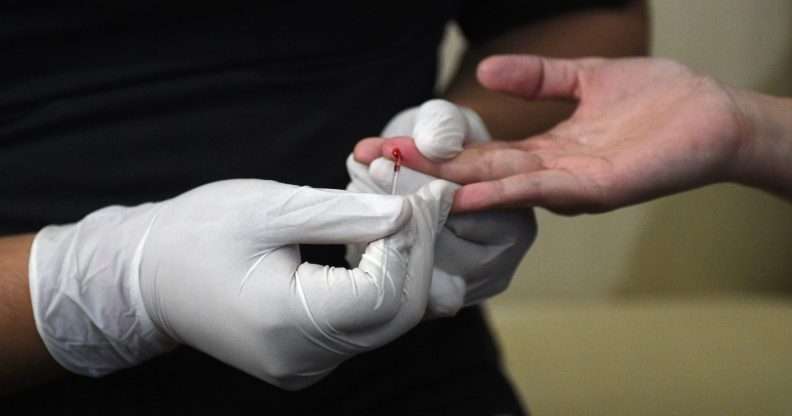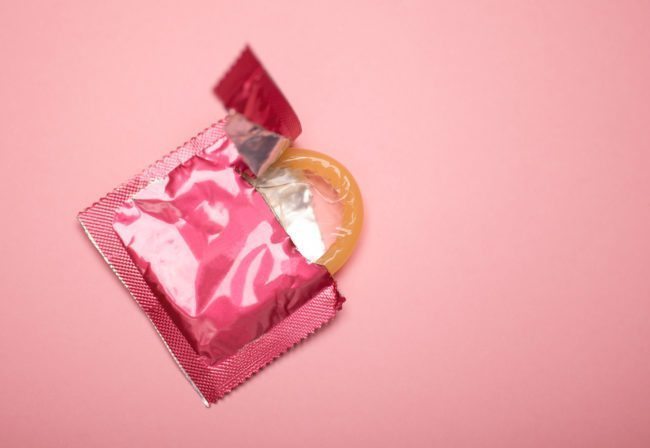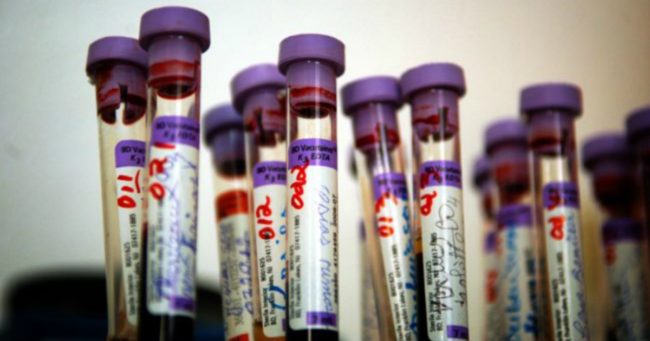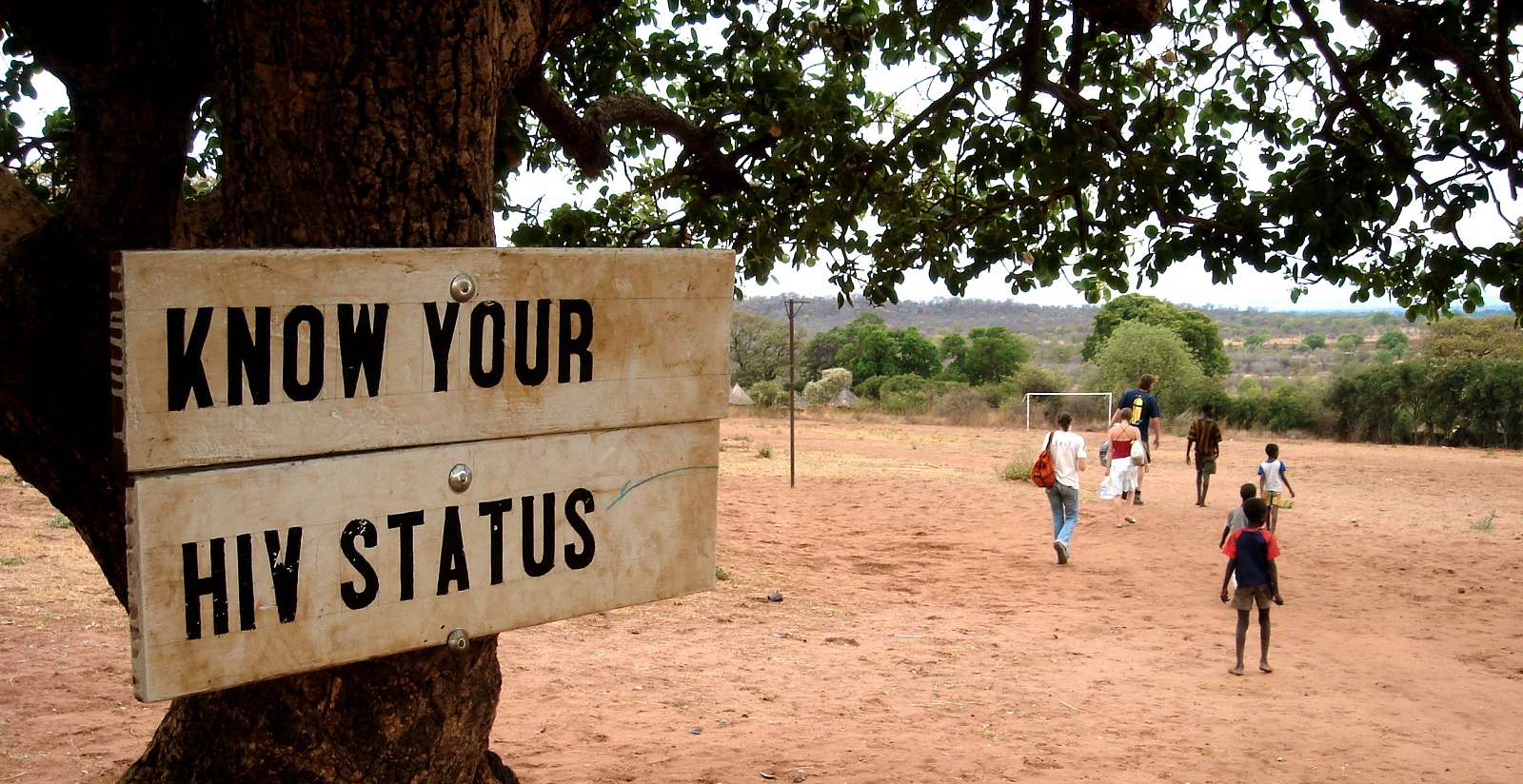HIV diagnoses have rocketed 3,147% over 10 years in the Philippines

A blood test for HIV (TED ALJIBE/AFP/Getty Images)
Newly released figures from the Filippino health department have revealed that the number of HIV diagnoses has rocketed 3,147 percent over the past ten years in the country.
In 2007, there were just 342 new cases recorded but in 2017 11,103 new cases were recorded.
The figures took a 20 percent jump from 2016 when 9,264 new cases were reported.
The release came days after Filippino president, Rodrigo Duterte, said that people shouldn’t use condoms because they aren’t “pleasurable”.

(Getty)
Duterte told a crowd of migrant workers that they should “avoid condoms because condoms aren’t pleasurable” while talking about the current population boom the country is experiencing.
Instead, he said that women should be seeking out oral contraception.
Further illustrating his point, the controversial president put a sweet wrapped in plastic into his mouth.
“Here, try eating it without unwrapping it,” he said. “Eat it. That’s what a condom is like.”
Filipino journalist and activist Ana Santos told Al Jazeera: “His comment on condoms tells us how little he knows about the HIV epidemic in the Philippines, and how condoms are a scientifically proven method to prevent its spread.

(PLEJFHA)
“[HIV] has been festering [because of] historically low condom use due to shame and stigma and a misconception that condoms are not pleasurable.”
The high numbers have been coined a national emergency by activists.
Carlos Conde, a Human Rights Watch representative, said that president Duterte should be taking “meaningful action” to expand access to condoms and their use nationwide rather than criticising them.
“Policies restricting access to condoms are a threat to public health,” Conde said.
Ronnievinn Pagtakhan, a top Filipino advocate of HIV-AIDS prevention, added that the numbers were “alarming”.

Pagtakhan runs a health centre in Manila where between 100 and 120 people a day get tested for HIV.
Between eight and 10 percent of tests come back positive.
“There is an epidemic,” he said. “In view of the explosive growth in the number of HIV infections in the Philippines, we need more conversations rather than quick judgement and hate.”
The country announced last year that a trial of PrEP (Pre-exposure Prophylaxis) would be launched to try and combat the rocketing rates of infection.

200 people, mainly gay men and trans women, will have access to pre-exposure prophylaxis treatment.
The World Health Organisation strongly backed the use of PrEP as HIV prevention in 2014.
Also known as Truvada, PrEP can drastically reduce people’s chances of being infected with HIV and is available in a number of countries to at-risk groups including men who have sex with men, sex workers and people in serodiscordant relationships.
Despite being backed by WHO and other health bodies, the global provision remains patchy.
So far, it has been approved for use by medical bodies in the United States and the European Union, as well as in Norway, Australia, Israel, Canada, Kenya, South Africa and Taiwan.

